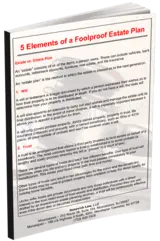If you are looking for an alternative to a will or you want to start sharing your assets during your lifetime, a trust might be an appropriate instrument. However, it may be beneficial to discuss your estate planning needs with an experienced trusts & estates attorney first before making a final decision. If you are interested in discovering more about trusts available in New Jersey, a Moorestown trusts lawyer could provide you with further information.
Trusts in Moorestown
No matter the type, most trusts in Moorestown are subject to the Uniform Trust Code. These regulations are codified in New Jersey Revised Statutes §§3B:31-1 through 3B:31-84.
Trusts themselves are codified via a document that instructs the trustee on how to administer the trust money. A legal professional might also refer to the money in the trust as the res.
The person who forms the trust is often called the grantor or the settlor. The recipients of the res, or proceeds from its investment, are called the beneficiaries.
The Duties of Trust Administrators
A trustee has many responsibilities to the beneficiaries and the settlor, including duties of both loyalty and due care. For example, they may not engage in self-dealing nor exhibit risky behavior that depletes the res.
That being said, some Moorestown trusts may be discretionary, meaning the trustee may prudently invest the funds and distribute them as they see fit. However, some settlors may choose to be very specific in directing the trustee to follow their instructions precisely.
A trust identified in a last will and testament may go into effect when the will is read, and the court could appoint a trustee if one has not been chosen. A capable Moorestown trusts attorney may be able to provide advice on how to choose a trustee.
Problems with a Trustee
Per N.J.R.S. §3B:31-57, a trustee must act in accordance with the terms of the trust instrument and make a good-faith effort to meet the purposes of the trust. Furthermore, under N.J.R.S. §3B:31-71, a court may suspend or dismiss a trustee if it deems that they have failed to fulfill their duties of loyalty and due care.
In certain cases, beneficiaries to a trust may have issues with the trust administrator’s adherence to these obligations. If so, the settlor, beneficiaries, or a co-trustee may approach the court with an allegation that the trustee has been self-dealing and seek the removal of the trust administrator. A skilled trusts lawyer in Moorestown may be able to help consult on a case involving an unsuitable trust administrator.
Do Trusts Go Through Probate?
Trusts are a valuable tool for estate planning that can be used to avoid probate. Creating a living trust is one common choice people sometimes make to get around probate, although probate is generally not as drawn out a process in New Jersey as it is in other states.
When establishing a living trust, the grantor transfers control of their property into the trust. There is a wide range of assets that a grantor could place in a trust, including family home, investments, bank accounts, cash, and other forms of property. The trustee is then responsible for managing the living trust.
The person who establishes the trust may sometimes also be the trustee. However, it is important to designate a substitute trustee to manage the trust upon the initial trustee’s passing. It is this successor who will be responsible for maintaining and disbursing the property contained in the trust.
Are There Advantages to Creating a Trust in Moorestown?
There is an array of advantages to creating a trust. A trust is often an advisable choice in circumstances where someone wishes to avoid probate, however, there are other benefits. By establishing a trust, the individual could ensure that the person of their choosing is set to manage their affairs if they pass away or are incapable of making decisions about their estate. A trust can also be a valuable tool to safeguard someone’s assets while ensuring that the person’s named beneficiaries are well provided for. A trust can detail the individual’s wishes about the care of their minor children, the intended structure for the distribution of their assets, and general provisions for the management and maintenance of their estate.
What Are the Different Types of Trusts?
Revocable trusts or irrevocable trusts are the two main types of trusts. When a person establishes a revocable trust, they have the power to alter or terminate it later if they so choose. An irrevocable trust, on the other hand, is one where the provisions cannot be changed except for certain limited reasons, and the trustee has total authority over the assets in the trust. A Moorestown lawyer could help someone determine which trust type of best for their estate planning needs.
Make an Appointment with a Moorestown Trusts Attorney
A trust can be a practical option for those who would like to put someone in charge of managing and distributing their assets. If you think you would like to set up a trust, but you are not sure what kind might be appropriate, a seasoned Moorestown trusts lawyer could present you with several possibilities for passing on your funds. Call today to schedule a meeting and get your questions answered and your concerns addressed.

 (856) 439-6223
(856) 439-6223
